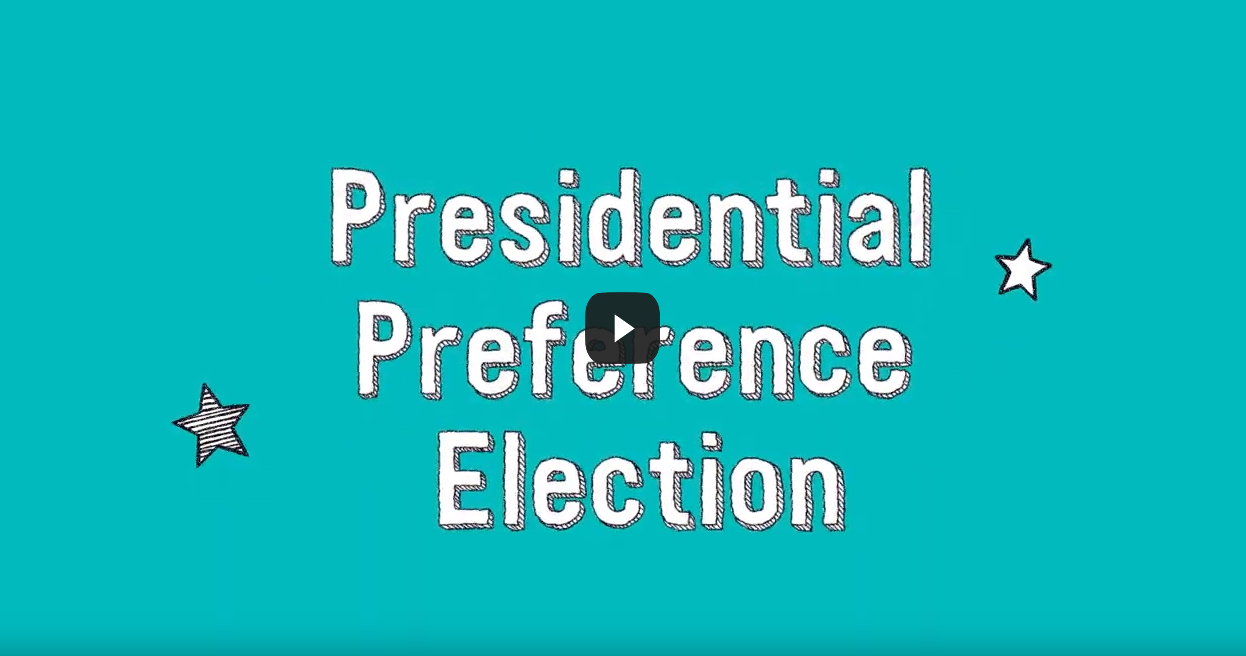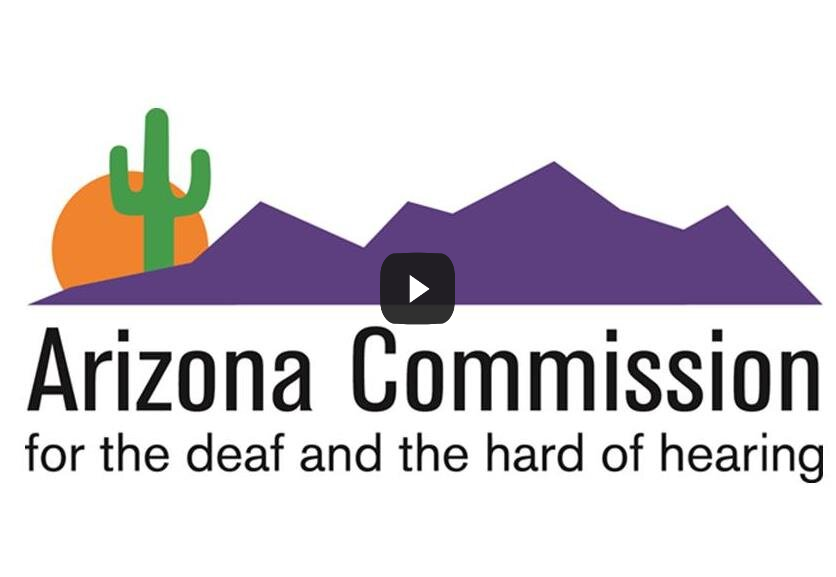| Location | Election Type | What's on the Ballot |
|---|---|---|
| Statewide | Presidential Preference Election | Democratic Party Presidential Candidates |
Important Dates
-
February
1 UOCAVA Ballots Mailed -
February
18 Voter registration deadline* -
February
19 Early voting begins -
March
6 Last day to request a ballot by mail -
March
11 Mail in your early ballot by -
March
13 Last day to vote early in person -
March
17 Election Day
*As of Aug 9, 2017, voter registration deadlines falling on a legal holiday or weekend move to the next immediate business day, pursuant to changes enacted by SB 1307.
What is the Presidential Preference Election?
The Presidential Preference Election (PPE), is an election in which voters can choose who they would like to be their presidential candidate in the upcoming General Election.
Watch the Arizona Commission for the Deaf and the Hard of Hearing's video explaining the PPE, presented in American Sign Language!
Who is on the Ballot?
View Candidates
Who Can Vote:
- Only voters registered with the participating parties can vote in the PPE.
- The Democratic Party is the only political party participating in the PPE.
- This means only voters registered as Democrats can vote in the March 17 PPE.
Why can only Democrats vote?
The PPE is not a primary election. This means Arizona’s open primary law does not apply to the PPE. Therefore, only voters of a participating party may vote on that party's ballot. Since the Democratic Party is the only party participating in the PPE, only Democrats can vote in the PPE.
Can I change my political affiliation so I can vote?
Yes. The voter registration deadline for the PPE is February 18, 2020. Any voter that is a registered Democrat by that deadline can vote in the PPE.
Where do I vote?
Use the Voter Dashboard tool to find voting locations near you!
Emergency Early Voting:
Qualified electors who experience an emergency between 5:00 p.m. on the Friday preceding the election and 5:00 p.m. on the Monday preceding the election may request to vote at an emergency voting center. “Emergency” means any unforeseen circumstance that would prevent the voter from voting at the polls.
Voters should contact their county for emergency voting information.
County Contact
What Happens After the PPE?
The state parties will hold their state conventions to determine their delegates. Delegates from all of the states attend the party’s national convention, where the party winners of the Arizona PPE are then considered among the other states’ nominees. The official party candidate for President of the United States is selected to represent the party nationally, and placed on the general election ballot across the country.
National Conventions Schedule:
- Democratic National Convention = July 13-16, 2020 in Milwaukee, WI
- *Republican National Convention = August 24-27, 2020 in Charlotte, NC
- Green Party National Convention will be July 9-12, 2020 in Detroit, MI
- Libertarian Party National Convention will be May 21-25, 2020 in Austin, TX
How are delegates selected?
The process for selecting delegates is prescribed by each party’s bylaws. The PPE decides who the delegates vote for at the national convention.
Do the delegates have to vote for the PPE winner?
Delegates must cast their ballot for the candidate who won the PPE in Arizona unless:
- candidate is nominated by the convention
- candidate releases delegate's obligation
- candidate withdraws from the race
- one round of voting has been held without an official nominee being selected
- After one of the above occurs, each delegate is free to vote as he/she chooses
Quick Breakdown
- Register to vote by FEB. 18, 2020
- Presidential Preference Election Day is MAR. 17, 2020
- Only Democrats can vote in the PPE.
- Nominees are finalized at respective party's national conventions MAY to AUGUST 2020
- General Election Day is NOV. 3, 2020
- PPE – partisan voters select their preferred party candidate
- Primary Election – nothing to do with voting for president
- General Election – vote for president (via presidential electors/electoral college)
View Infographic
Voting FAQ
Voting FAQ
1. When are the polls open?
2. Can I vote early?
3. What if I have an emergency and can't vote on Election Day?
4. Do I need ID to vote early?
ID is required if you vote early in person, or at a polling place or voting center on Election Day.
List of Acceptable Identification

